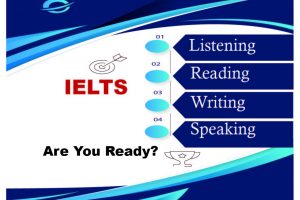
How can I get a high score on the IELTS test?
How to achieve a high score on the IELTS test, and how to get a good score on the IELTS test are very common questions in terms of the IELTS test. In this article I have written in detail about how to get a good score in IELTS, writing, listening, reading, and speaking exams. How can I get a high score on the IELTS exam, how to achieve a good score on the IELTS test or how to get a band score of 8 in IELTS, those are very frequent questions from the applicants. You will find the answer by reading this article. In addition, I have focused on every module where I have given 26 tips altogether to encounter your IELTS test. In fact, we have to follow particular tips and tricks for different modules. Let’s go through it in detail. First, let’s focus on Writing.
Writing
- Paraphrase properly
It is very much important that you are paraphrasing properly in your writing task. You have to illustrate a nice paraphrase for wring task 1 and writing task 2. Paraphrasing is the first impression. You might create an appeal through paraphrasing. Additionally, whenever you write a paraphrase you should not repeat the words that they have used already in the text. You have to write it with synonyms or make it passive or by flipping the order around.
- Write the overview
An overview is a kind of synopsis through which you have to give the sense to the examiner of what and what you are going to write about. It is expected that you should write two sentences for the overview or you are making a passive sentence for the overview.
- Use phrases and connecting words
You are suggested that you would write phrases for writing task 1 and writing task 2. There are different types of phrases for writing task 1 and writing task 2. Moreover, connecting words need to be used to link the ideas that is required for cohesion and coherence.
- Use a range of grammar
It is greatly recommended that you are using a range of grammar in your writing. Range of grammar implies that you have to write simple sentences, compound sentences, complex sentences, passive sentences, conditional sentences, would base sentences and causative sentences, and so on. Here it is being mentioned that the first four types of sentences you should use for writing task 1 however, you can use all types of sentences in writing task 2.
- Write to express not to impress
There is a kind of instinctive drive to impress the audience through our words or writing. Nevertheless, in the writing, you should not write any type of flowery words just to impress the examiner. In fact, you can use a range of words that are effective to express your thoughts, thus, it’s been said to try to express not to impress.
- Write again and again and check.
To develop your writing skill you need to write each and every single day. I am saying writing is a kind of art. You may write basic writing that might meet the criteria on the other hand you might produce an incredible piece of writing that demonstrates your unique writing skill. Indeed, without writing a lot you can’t produce nice writing. Thus, write write and write.
- Overcome grammatical mistakes
Grammatical mistakes will downplay your skill in writing. Hence, it is imperative to overcome the mistakes in order to dazzle your skill in writing. Couple of things an examiner takes seriously such as spelling mistakes, grammatical mistakes, relevancy, and so on. Therefore, you have to care about your grammatical skill significantly.
Reading
- Read the question first
There is a common phenomenon in terms of reading modules that is reading the text first rather than reading the question. Reading the text first would not be productive because you don’t know why you are reading and what you need to find out from the text. Thus, you are suggested to read the question first to specify the notion that you need to find out from the text.
- Underline the keywords
Keywords are sort of pole stars for you in the reading. It will lead you to find an accurate answer to your questions. Thus, first, you need to read the question and then you need to find keywords and underline those keywords accurately. Having done the underlining of the keywords you need to go to the text to skim it.
- Skim and scan the text
As soon as you have completed the underlining of the text you have to skim the text. Skim simply means browsing the text or reading lightly. Skimming will help you to find the clue where the answer should be. Based on that, you have to scan the area. In addition, scanning implies you are reading by focusing on the answer thus, you are reading very precisely and concisely with giving priority to that area where would be the probable answer.
- Don’t be trapped
In the reading text, many words are used to pull you into the trap. In fact, it is worth mentioning here that in the reading section, you will be tested in terms of the cognitive skills which implies you are expected to separate the mainstream issue from the supportive tissues. Therefore, you have to demonstrate that you are competent enough to isolate them and you are suggested not to be trapped with their strategies.
- Manage the time
In particular to the reading, it’s being said that time is the biggest enemy. Three texts will be given and you have to answer all those answers in the text. Thus, it will be difficult enough to struggle of managing the time. You are recommended to use 15 minutes for the next 1, 17 minutes for text 2, and 20 minutes for text 3. However, still, there are 8 minutes left from where you have to spend 4 minutes revising the questions and 4 minutes transferring the answers to the answer script.
- Don’t be panicked and answer all questions.
Time management miscalculation might lead you to be panicked. If you don’t spend time accordingly, you might feel tremendous stress which will be resulted in disaster. Once you fail to manage the time, everything will be messy and you would get panicked. Thus, you are suggested to manage the time and answer all the questions.
Listening
- Read before listening
While you are taking the IELTS listening test, you will get a couple of moments before the audio plays. You might be instructed on different aspects of the test. Nevertheless, you are recommended to go through the questions and grasp them as quickly as you can. While you are doing so underline the keywords. That’s how you have to stay one step ahead of the audio.
- Read while listening
It implies while you are listening, you have to go through the question again and try to match the answer based on the keywords what already you have done. You have to be pretty aware of the audio and questions that are given for the test. Keep moving with the audio and question. Once you get lost you might be a victim. It’s kind of a race between you and the audio. If you miss any answer, don’t worry and don’t spend too much time to find it moreover, look forward to catching the next one.
- Get used to with paraphrase
Paraphrasing is the irony for the listening module too. The thing is, whatever you will be listening to from the audio you won’t find the same text in the question script. In fact, the question will be paraphrased from the audio and hence, you are requested to get used to the paraphrase.
- Get used to the synonyms
To be used with the synonyms you need to know many words unless you won’t be able to make a relation to the words and synonyms of the audio. I have said already, that the audio will be paraphrased for the question at the same you will find synonyms in the question. It implies, that you won’t find the same words that are spoken in the audio and in the question. In the question, either you will find paraphrases or synonyms. Thus, it is imperative to get used to synonyms too.
- Find the anchor words
Whenever you read the question you have to find the anchor words of a particular question. You need to underline it to grasp the answer to that question. Anchor words or keywords will lead you to find the exact answer to that question. Therefore, you have to find the anchor words of a question.
- Get used to the foreign accent
In the first and third parts, you will be listening to a conversation between a couple of people. In the first part, in most of the cases; two people will be talking about admission, bank account, finding location or ticket booking, and so on. However, you may find those people have come from different cultures and languages thus, their pronunciation is also different. Therefore, you have to be used to different foreign accents.
Speaking
- Speak fluently
It is expected, that you will be talking fluently. It is one of the assessment criteria for speaking. However, being fluently necessary does not mean that you should speak nonstop to prove your fluency. The thing is, fluency simply means you should speak steadily but continuously. If your frequency of speaking is get dropped you will be downplayed by the examiner. Thus, you have to speak fluently for your speaking.
- Use gap filler
Gap filer is technically helpful for fluency. When we speak in English, sometimes stammer and lose our rhythm in terms of fluency. In this case, we can lift our fluency by using the gap filler. A list of gap fillers has been given in the following.
- Use phrases and idioms
It is important to use the phrase and idioms in your speech. The phrase will create an impression on the examiner. Thus, you have to get used to the modern communicative phrase and idioms.
- Use a range of grammar
In your speech, you have to use a range of grammar. Range of grammar implies, simple sentence, complex sentence, compound sentence, passive sentence, causative sentence, would base sentence, and conditional sentence. That’s how we can demonstrate our skill in speaking.
- Speak to express not to impress
While we are taking a speaking test we should speak naturally. We should not pretend to speak like British or American. We may try to impress the examiner by speaking like that but we ought to ignore it. We have to speak the way I am naturally used to just that way and that’s how you have to express what we like to speak.
- Get used to the presentation
If you are a good presenter then you are a good speaker too. It implies that you should go through the presentation and the presentation will make you a good speaker. You might practice it on your own for instance, standing in front of the mirror and thinking you are speaking in front of millions of audience. That’s how you can practice being a good speaker.
- Overcome the grammatical mistakes
While you are speaking ensure you are not making grammatical mistakes. Grammatical mistakes will undermine your capabilities in terms of speaking. Thus, you need to make sure that you are not making any grammatical mistakes while you are taking the speaking test. In fact, you need to develop your skill before taking the IELTS test.
.
Tag:ielts writing



